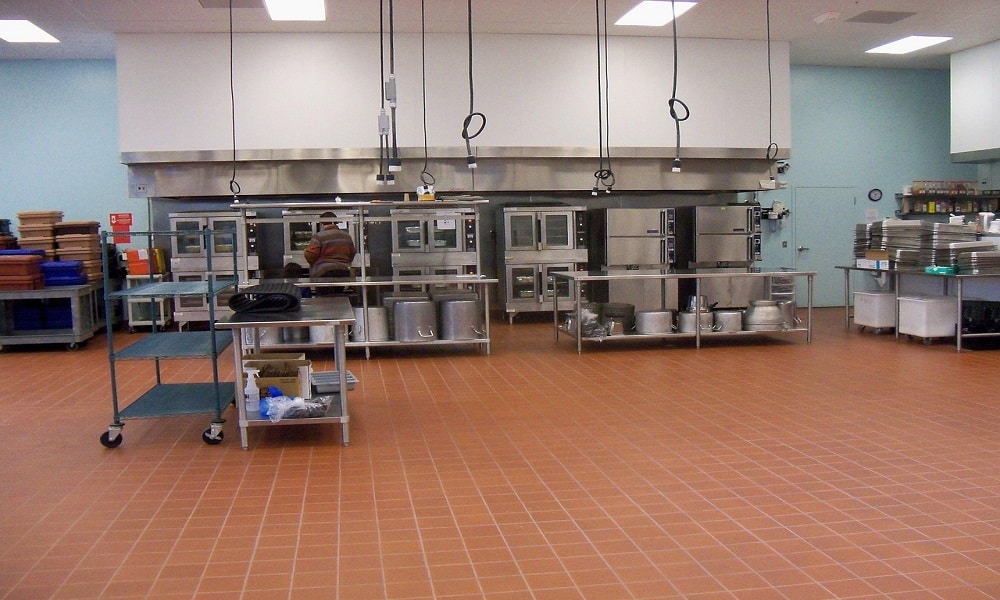Commercial kitchens are built on speed, consistency, and cost control. Every supply choice either helps or harms those three things. Cooking oil is one of the most used products in restaurants, but it’s also one of the most overlooked operational cost drivers. Most operators think about it only in terms of price per jug or case. In reality, cooking oil is a strategic ingredient tied to quality, equipment lifespan, food consistency, and labor efficiency. The kitchens that scale profitably don’t treat oil like a basic commodity, they treat it like part of their operating system. Buying in bulk is one of the clearest ways to protect margin, improve workflow, and reduce variability. Let’s look at these benefits more closely.
Bulk Cooking Oil Reduces Ordering Friction and Improves Cost Control
Restaurants burn through oil faster than they realize, especially those running fryers all day in high volume operations. Managing oil one case at a time wastes labor, increases order frequency, and forces kitchens to run reactively instead of being proactive. Purchasing bulk cooking oil streamlines both the purchasing process and the refill process.
Working with a trusted delivery service allows restaurants to get consistent delivery, minimize outage panic, and reduce emergency grocery store top-off runs that eat into profit. Bulk also protects kitchens from price volatility, since buying larger quantities often results in better negotiated pricing and steadier cost forecasting. This isn’t just a supply chain upgrade. It’s a margin protector. When the highest volume ingredient becomes stabilized and predictable, profitability gets more stable too.
Operational Efficiency Goes Beyond Ingredients
Restaurants don’t scale by optimizing one piece of the business. Everything interacts. Even the point-of-sale systems improve speed, reduce human error, simplify staff workflow, and create more accurate reporting across the operation. This is directly tied to oil usage management as well.
When ordering cadence is predictable and POS systems reflect real-time demand, restaurants plan their oil inventory more accurately, forecast usage better, and reduce waste significantly. Smart operators don’t treat their cost controls as separate domains. They integrate them. Bulk oil purchasing works better when the rest of the kitchen systems communicate clearly with demand cycles.
Bulk Oil Improves Kitchen Productivity and Labor Allocation
Refilling fryers, tracking jugs, breaking down boxes, dealing with empty containers, and hauling oil storage around the kitchen all cost time. Bulk systems remove repetitive labor and eliminate the drain of micro tasks that interrupt line flow. Repeated bottlenecks slow service down and increase staff frustration, especially during peak periods.
A bulk system reduces clutter, reduces physical strain, and allows cooks to stay in station focus mode instead of shifting into supply chain mode mid-shift. Productivity is usually lost in seconds, not hours. Bulk oil preserves those seconds.
Better Oil Storage and Delivery Leads to Better Food Consistency
Fresh oil matters for flavor, crispiness, texture, and visual appearance. When oil is managed in bulk storage rather than random container stacks, restaurants get more consistent oil quality because it’s easier to rotate, filter, and maintain threshold standards. Batch cooking becomes more consistent because the oil environment becomes more controlled. That matters when customers expect the exact same texture, color, and fry quality every single time they order their favorite dish.
Bulk storage also reduces contamination risk from repeatedly opening and handling small containers. Cleaner oil produces cleaner flavor. Cleaner flavor produces better customer repeat behavior.
Bulk Oil Delivery is Safer and Reduces Injury Risk
Kitchen safety is not an optional luxury. Every operator knows someone who has slipped, strained, burned, or suffered avoidable injury because of unnecessary heavy lifting or awkward manual transfer of oil. Bulk systems reduce container handling, reduce spillage, and reduce the weight that kitchen staff is forced to move.
If you reduce injury risk, you reduce worker’s comp exposure, unexpected shift coverage gaps, morale issues, and long-term physical wear and tear on employees. Safer kitchens are more productive kitchens. And safer kitchens lose less money through preventable accidents.
Bulk Systems Often Include Recycling Support
Used oil disposal is a bigger concern than most new restaurant owners expect. Environmental compliance rules vary based on location, volume, and type of establishment. Bulk oil partners typically include recycling pickup, which solves one of the hardest administrative hassles kitchens deal with. Instead of manually dealing with disposal, operators can schedule coordinated pickup and keep their facility cleaner and more compliant.
Sustainability initiatives are becoming stronger across both customer preference and regulatory expectation. Bulk systems create a cleaner environmental footprint while being easier to manage inside the restaurant’s daily rhythm.


